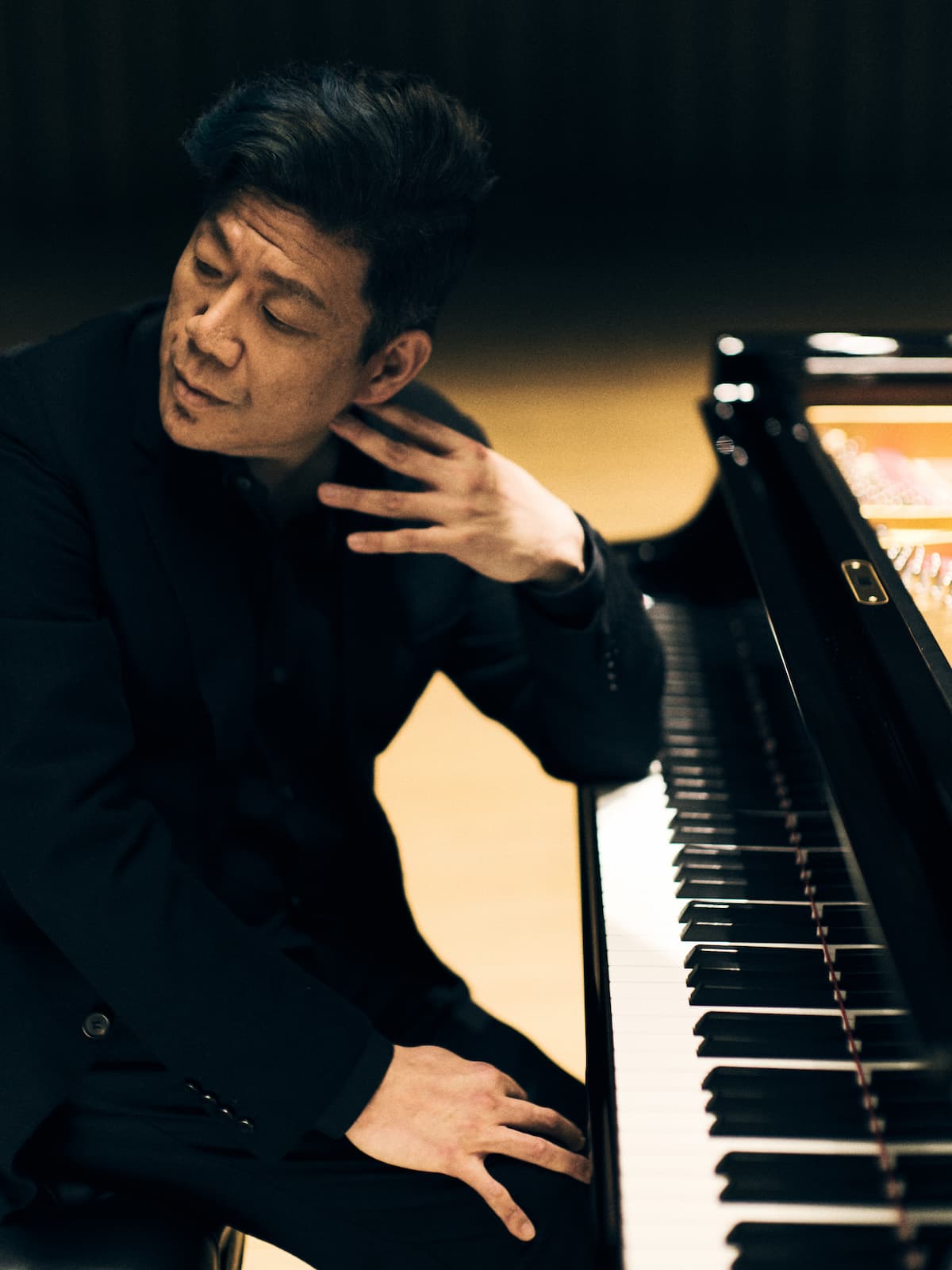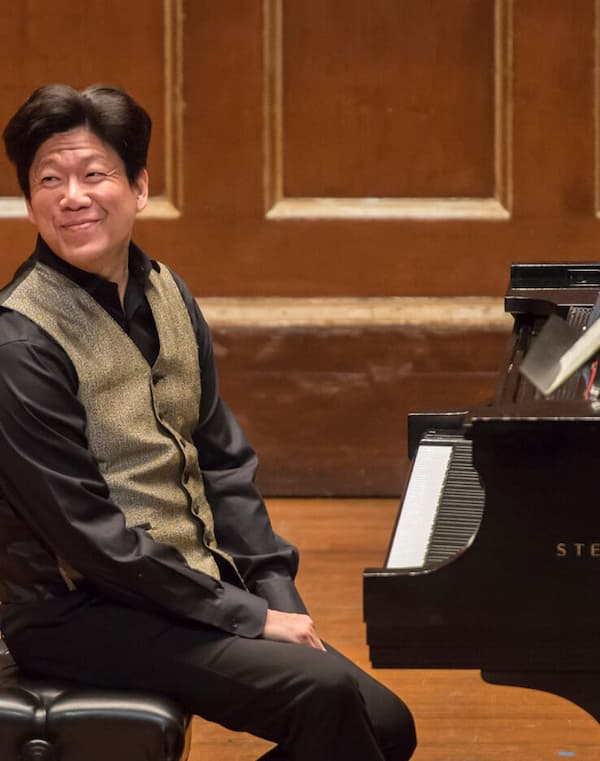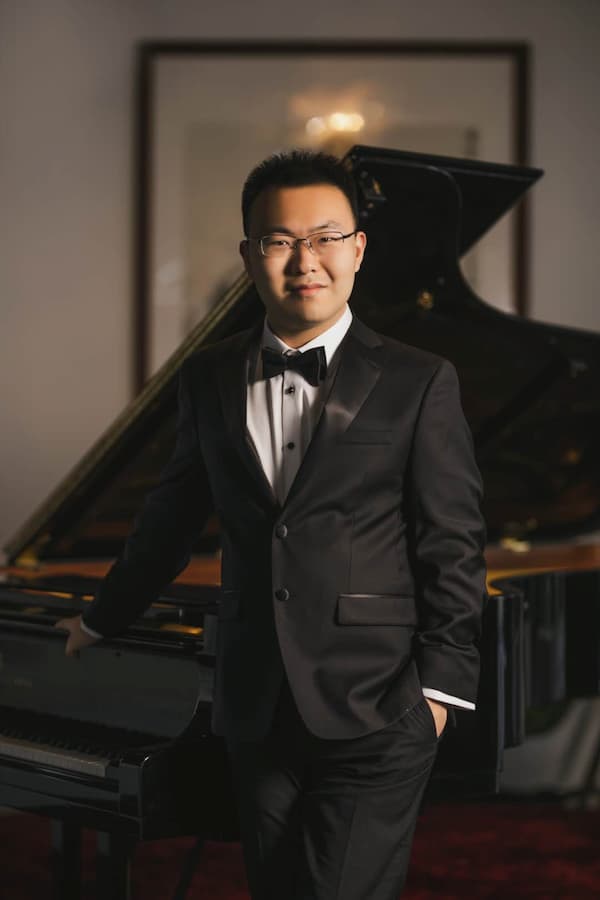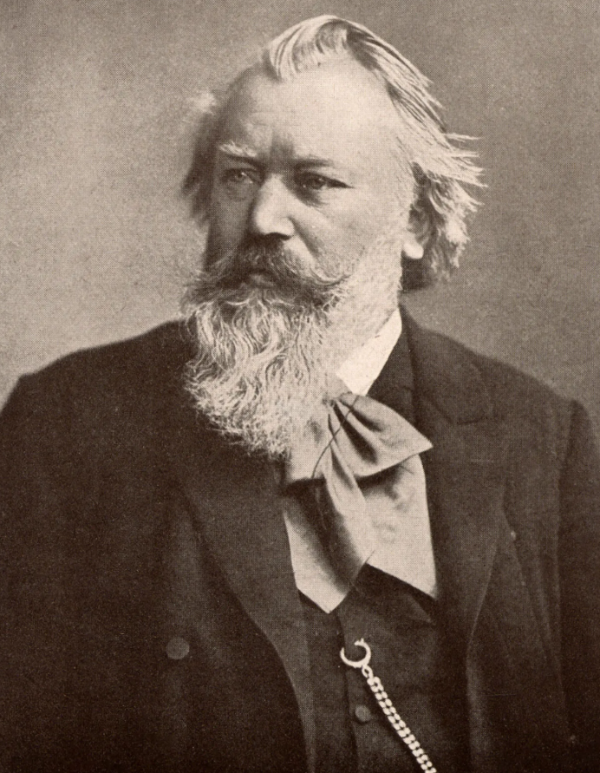Even though I met Meng-Chieh Liu not too long ago, I already felt a great admiration for his virtuosic accomplishments, his sense of humanity, and his resilience in the face of adversity. Recognised as a prodigy growing up, he had left his hometown in Taiwan to study at the Curtis Institute of Music since the age of 13. By the time he was in his early 20s, he had won significant awards and could have embarked on a brilliant concertising career readily, when his piano playing was halted – he was struck with a debilitating illness that left him paralysed for months. That disruption must have been devastating, with the greatest blow being an uncertainty whether his pianistic skills could revive. However, as they say, when fate closes a door, a window opens. His expertise was then transferred to teaching at Curtis, where students were reputed to hold some of the highest music standards in the world. He was teaching full-time while his strength was gradually restored, enabling him to rebuild his performing career.
Maurice Ravel: La Valse
Now, at age 54, he has evolved into a prestigious concert pianist and educator, wearing several demanding hats:– (i) as a fully engaged world-class performer, making recordings, learning ambitious repertoire, planning to present a series of contemporary works, and collaborating with other high profile musicians and conductors; (ii) as a most sought-after teacher and masterclass presenter/ lecturer, teaching and mentoring top calibre pianists who regularly excel in the toughest international competitions; (iii) as a conscientious manager of his own precarious health conditions, constantly on the alert to deal with medical emergencies. It seems like he is being pulled in different directions, with all of them exerting tremendous pressure. When one strives to be great in everything one commits to, he or she has to become very adept at handling complexity. Such is the making of a “Complex Artist”.
Meng-Chieh Liu’s Background

Meng-Chieh Liu © Kuo Fang Wei Studio/Waso Lai
1. Education and Training
Born in Kaohsiung, Taiwan. At 13, Meng-Chieh Liu was accepted by the Curtis Institute of Music in Philadelphia. He studied with Jorge Bolet, Eleanor Sokoloff, and Claude Frank.
2. Awards and Recognition
2002 Avery Fisher Career Grant
2002 Philadelphia Musical Fund Society Career Advancement Award
First prize in the Stravinsky Competition
First prize in the Asia Pacific Piano Competition
First prize in the Mieczyslaw Munz Competition
3. Performance Career
He made headlines in 1993 as a 21-year-old student when he substituted for André Watts at the Academy of Music in Philadelphia with three hours’ notice. His acclaimed performance was followed by a recital at the Kennedy Center, among other high-profile appearances.
He has appeared with orchestras under noted conductors Christoph Eschenbach, Gustavo Dudamel, and Alan Gilbert, among others. His concerts have been broadcast around the world, and Taiwanese National Television has aired a documentary on his life. A dedicated chamber musician, he has collaborated with the Borromeo and St. Lawrence string quartets, to name a couple. He was artistic director of Chicago Chamber Musicians from 2011 to 2014; and has also worked with artists in other disciplines, like dance.
He is known for his versatility, performing music from Scarlatti and Bach to Szymanowski, Messiaen and other contemporary composers; in recent years, he undertook several immersive projects – performing the complete piano music by Johannes Brahms and complete piano sonatas by Franz Schubert.
He has recently taken on additional challenges, both in recital and concerto programmes, and has now focused his energy on recording. His most recent album of Chopin’s complete nocturnes was released on Decca in January 2023.
Chopin: Nocturne Op.72 No.1 in E Minor
4. Teaching Career
His reputation as a teacher/mentor has brought him across the globe in summer festivals, masterclasses, and lecture recitals. His students have been winning prizes in international competitions like the Chopin and Tchaikovsky, among many others. From 2006 on, he was teaching at Roosevelt University in Chicago while still commuting to teach at Curtis. Since 2014, he has started to teach at the New England Conservatory in Boston while maintaining his teaching position at Curtis.
As he works earnestly in all his career advancements (perhaps to compensate for years of lost time in his youth), he continues to strive for excellence.
Achieving Greatness

Meng-Chieh Liu © New England Conservatory
1. A Great Artist
This characterisation of Meng-Chieh Liu is not exclusively on account of his innate musicality and virtuosic prowess but his empathetic resonance with the composers, coupled with his unwavering love for music. After following his career for some time, I was astounded by the immense sacrifices he had to make in order to conquer numerous health challenges throughout the years. Yet, all the while, he was vehemently uncompromising to the artistic demands warranted by his talent. His story is a testimony of steadfast dedication to his comprehensive ambitions and determination to actualise his ultimate goals.
His most impressionable quality for me is his ability to touch the audience with his deep passion for music. Absenting dramatic exaggeration and flamboyant fanfare, he genuinely expresses what is in his heart and soul and fervently emotes with eloquence and elegance. The following is a comment from one of his longtime loyal fans, who is a very experienced concert attendee and devoted classical music supporter, “I just love his playing! He can make me love any music, even from the composers I don’t like!!”
His choice of repertoire is innovative and sophisticated, as evidenced by the recital I just heard last week – an all sonatas’ presentation featuring Mozart, Dutilleux, Bartók and Liszt. I was fascinated by the broad range of compositional scope in form, style, technique, colour, and sentiment. It was gratifying from both intellectual and emotional standpoints, especially when so much intensity, profundity, even joy, pain and suffering were successfully evoked in these works. Like the previous fan I quoted, I surely did not love all the repertoire in the recital that evening, but I loved what Meng-Chieh Liu had to say with the music.
Recital Programme on January 15th, 2025
Piano Sonata No. 5 in G Major, K. 283 – Wolfgang Amadeus Mozart (1756-1791)
I. Allegro
II. Andante
III. Presto
Piano Sonata (1947-1948) – Henri Dutilleux (1916-2013)
I. Allegro con moto
II. Lied
III.Choral et variations
intermission
Piano Sonata, BB 88, Sz. 80 – Béla Bartók (1881-1945)
I. Allegro moderato
II. Sostenuto e pesante
III. Allegro molto
“Isoldens Liebestod” from Tristan and Isolde – Richard Wagner (1813-1883) / Franz Liszt (1811-1886)
Après une lecture du Dante: Fantasia quasi Sonata, S. 161/7 – Franz Liszt (1811-1886)
Chopin: Nocturne Op. 9: No.1 in B-Flat Minor (Larghetto)
2. A Great Pedagogue
I would ascribe the title of “master teacher” to him because he does not just teach – he diagnoses, enlightens, stimulates, develops, inspires, encourages, and most of all, cares about the musical growth of the students he encounters – regardless of age, level, degree of talent, ability, and commitment.
From my observation at masterclasses at the university level, he was astute in identifying problems, even complicated ones, and could instantly offer the most apt and efficient remedies. However, his solutions are only effective providing the recipients have the capacity to grasp the gist of his deep and penetrating analysis, build up patience and endurance to rigorously perfect their technique, and cultivate an open mind to appreciate fresh insights. In other words, he is most suitable for teaching lifelong learners, who will take time to ponder and digest his methodology, then seriously reflect and expand on his philosophy. However, in this day and age of dispensing fast and easy “tips” aiming at the superficial and populist demographic, such a commendable teacher is “one-of-a-kind”.
Nonetheless, for those superlative talents whom he had once taught and mentored at Curtis, there were several prominent names who have made it big on the world stage. Their identities were never publicly disclosed, as Meng-Chieh Liu is by nature modest and low-key, even though his contribution to their success is invaluable. For this article, I am mentioning two of my personal favourites among his students, who had acquired notable recognition in major competitions and whose music moved me:
(i) Aimi Kaboyashi :- “Perfect technique, a light touch, fast, and virtuosic.”

Aimi Kobayashi © Shuhei Tsunekawa
Aimi Kaboyashi studied with Meng-Chieh Liu at the Curtis Institute of Music. She was the fourth prize winner of the 18th Chopin Piano Competition, and since then, garnered international acclaim for her exceptional talent. She has already performed with major orchestras both in Japan and beyond and has recorded works by Bach, Beethoven, Chopin, and Liszt for Warner Classics.
In 2024, she appeared with the Tokyo Symphony Orchestra and, later in the year, with the Münchner Philharmoniker. Her latest recording is “Schubert” from Warner Classics.
I was most amazed by her rendition of the Chopin 24 Preludes, op. 28, at the Chopin Piano Competition in 2017. It was the most moving interpretation I have ever come across and probably the best in my recollection so far.
Schubert: Impromptus Op.142, 935: No. 4 in F Minor
(ii) Tianxu An

Tianxu An © Jacksonville Symphony
Tianxu An is a sought-after young artist, both at home in China and abroad. He moved to Philadelphia in 2015 to attend the Curtis Institute of Music studying with Meng-Chieh Liu. In June 2019, he drew international attention when he won fourth prize at the 16th International Tchaikovsky Competition. He has since performed all over China and elsewhere, and recorded his first CD in August 2021, a recital album featuring works by Tchaikovsky, Rachmaninoff and Prokofiev for Alpha Classics.
I was most impressed with not only his pianism during the Tchaikovsky Competition, but his classy response to the unfortunate mistake made by the orchestra, which began his final competition round with the wrong concerto. He was totally “cool, calm and collected”, and proceeded to carry on with the mistaken concerto, delivering a magnificent performance. His gracious and genteel attitude was most honourable.
Rachmaninoff: Rhapsody on a Theme by Paganini Op. 43 (Excerpt)
3. A Great Friend
After chatting sporadically with Meng-Chieh Liu for 2 days, it is evident that he is a very kind, caring and considerate person – also blessed with an advanced EQ – Emotional Quotient. Firstly, he primarily curates his own concerts, and judging from the frequency with which he performs in the U.S., Taiwan, China, and other parts of Asia, he must have enlisted assistance from friends and colleagues to sustain his busy concert schedule. Secondly, I have witnessed how his former students have become devoted friends. They often set up masterclasses or private lessons for their own students to benefit from studying with him. He is affable and comfortable with young students as well. For example, I was watching him sign an autograph for an 8-year-old student in her “Czerny Studies” book after a lesson, and she was all smiles! Thirdly, he must have developed an amiable relationship with his doctors and healthcare associates. He himself told the story about the time he was scheduled for an urgent heart surgery, but he had prior commitments to give concerts around the same dates. Shockingly, he insisted on completing at least one of the concerts before being admitted to the hospital! More surprisingly, his doctor showed up at the concert with two heart specialists, and they chaperoned him to his surgery as soon as the concert ended! To most people, this may sound bizarre, but to me, it demonstrates how music is his first and foremost priority, and his doctor friends even honour that notion! Last but not least, it is known that he is a longtime friend of Yuja Wang. So strong is the connection that if and when she seeks his input before a particular performance, he would travel any distance to the venue, and offers his support – a caring gesture indeed.
Brahms: Concerto No. 2, Op. 83, II. Allegro Appassionato
To conclude, this testimony from Alicia Li-Chan, one of his former
students, speaks volumes: When I first played for Mr. Liu in the lesson, I was so amazed by his capacity of knowing the entire piano repertoire. No matter which piece I brought to him, he would play it by heart and didn’t make any mistakes! Besides conveying his deep understanding of the music, in his teachings, Mr. Liu also places a significant emphasis on the technical aspects of piano playing, especially how to precisely use the fingers. His rigorous piano studies with various piano masters really make his pedagogical method stand out. Most importantly, his influence on nurturing and shaping a whole generation of Chinese pianists at Curtis School of Music is unquestionably enormous!
For more of the best in classical music, sign up for our E-Newsletter



